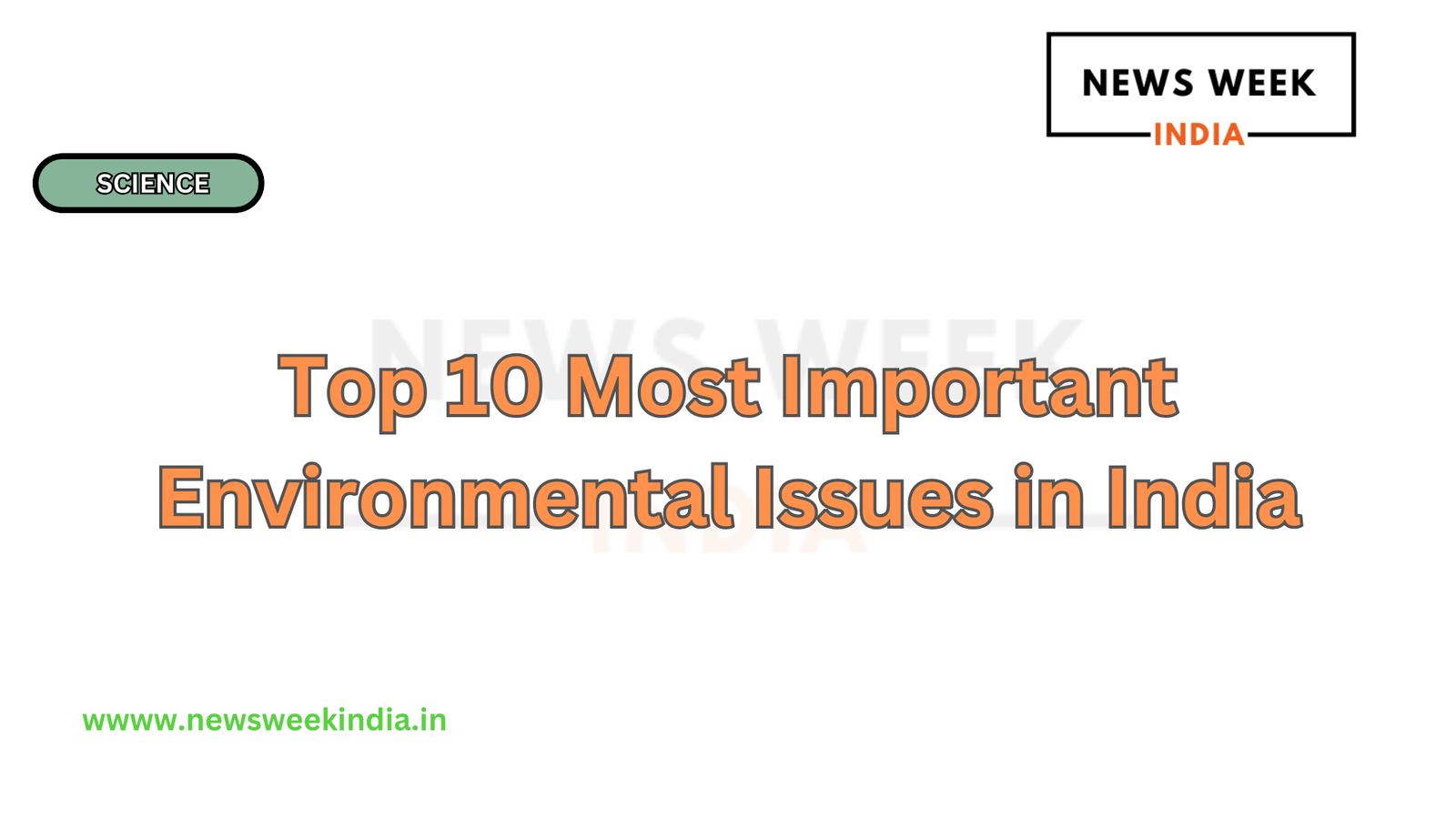
India, with its diverse ecosystems and rapidly growing population, faces a range of significant environmental challenges. Addressing these issues is crucial for sustainable development and the well-being of both people and nature. Here are the top 10 most important environmental issues in India:
Top 10 Most Important Environmental Issues in India
1. Air Pollution
Overview: Air pollution is a major concern in India, particularly in urban areas like Delhi, Mumbai, and Bangalore. Sources include vehicular emissions, industrial activities, and construction dust. The high levels of particulate matter (PM2.5 and PM10) have severe health impacts, including respiratory and cardiovascular diseases.
Key Issues: Vehicular emissions, industrial pollution, seasonal burning of crop residue.
2. Water Scarcity
Overview: India faces significant water scarcity due to overexploitation of water resources, pollution, and uneven distribution. Many regions experience severe droughts, and groundwater levels are declining rapidly. Water quality issues also arise from industrial discharge and inadequate sanitation.
Key Issues: Groundwater depletion, polluted water sources, uneven water distribution.
3. Deforestation
Overview: Deforestation in India is driven by agricultural expansion, logging, and infrastructure development. The loss of forests affects biodiversity, disrupts ecosystems, and contributes to climate change by reducing carbon sequestration.
Key Issues: Agricultural expansion, illegal logging, infrastructure development.
4. Biodiversity Loss
Overview: India is rich in biodiversity, but many species face the threat of extinction due to habitat loss, poaching, and climate change. The destruction of natural habitats and overexploitation of resources contribute to the decline in wildlife populations.
Key Issues: Habitat destruction, poaching, invasive species.
5. Climate Change
Overview: India is highly vulnerable to the impacts of climate change, including rising temperatures, changing monsoon patterns, and increased frequency of extreme weather events such as floods and droughts. These changes affect agriculture, water resources, and human health.
Key Issues: Rising temperatures, shifting rainfall patterns, increased frequency of extreme weather events.
6. Waste Management
Overview: Effective waste management is a major challenge in India. Rapid urbanization has led to increased waste generation, but inadequate infrastructure and inefficient waste disposal practices result in overflowing landfills and environmental contamination.
Key Issues: Inadequate waste collection and segregation, overflowing landfills, plastic pollution.
7. Soil Degradation
Overview: Soil degradation in India is caused by factors such as deforestation, overgrazing, and unsustainable agricultural practices. Erosion, loss of soil fertility, and salinization affect agricultural productivity and ecosystem health.
Key Issues: Erosion, loss of fertility, salinization.
8. Energy Consumption and Pollution
Overview: India’s growing energy needs are met largely through fossil fuels, which contribute to air pollution and greenhouse gas emissions. The reliance on coal and other non-renewable sources has significant environmental and health impacts.
Key Issues: Reliance on coal, greenhouse gas emissions, energy inefficiency.
9. Marine Pollution
Overview: India’s coastlines are affected by marine pollution from industrial discharge, plastic waste, and oil spills. This pollution impacts marine ecosystems, including coral reefs and coastal habitats, and affects marine life and fisheries.
Key Issues: Plastic pollution, industrial discharge, oil spills.
10. Land Degradation
Overview: Land degradation in India results from deforestation, overgrazing, and unsustainable agricultural practices. It leads to reduced agricultural productivity, loss of biodiversity, and increased susceptibility to erosion and desertification.
Key Issues: Overgrazing, deforestation, unsustainable agriculture.
Insights and Analysis
These environmental issues are interconnected and exacerbate one another, creating complex challenges for sustainable development in India. Addressing these problems requires integrated approaches, including policy reforms, community engagement, and technological innovations.
Also read: Introducing Lazy Turtle – Where Slow Living Meets Exceptional Dining
Last Updated on: Friday, September 27, 2024 1:02 pm by Admin | Published by: News Week India Team on Friday, September 13, 2024 2:19 pm | News Categories: India

Leave a Reply